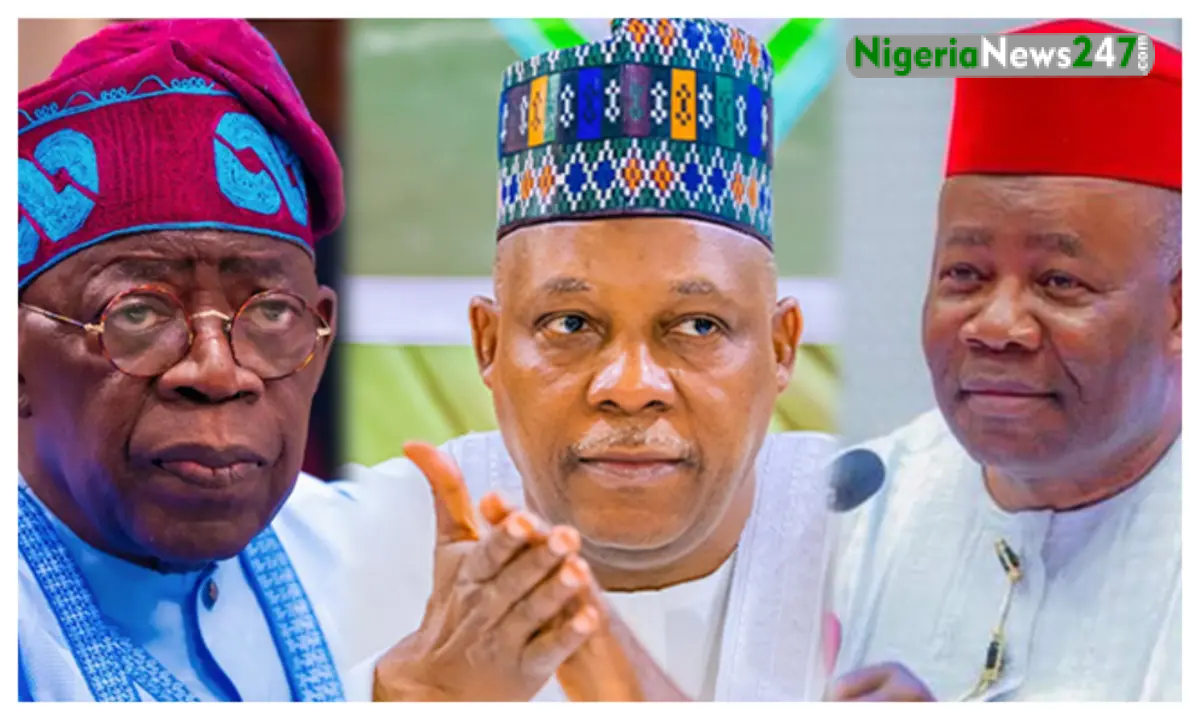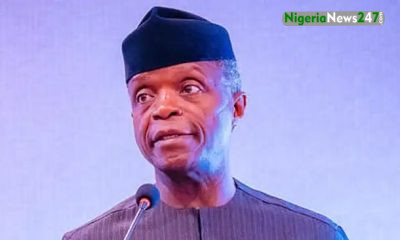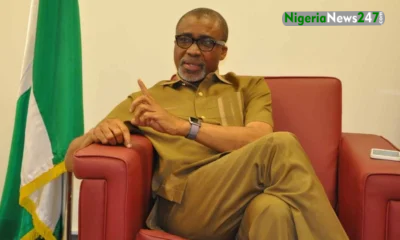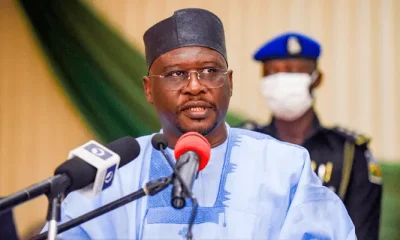NIGERIA NEWS
Nigerians Reject Pay Hike for Tinubu, Shettima, Akpabio, and Others

The Nigerian government is considering an upward review of salaries for political office holders, citing concerns that their current pay is outdated and insufficient.
Mohammed Shehu, Chairman of the Revenue Mobilisation Allocation and Fiscal Commission (RMAFC), made this known during a press briefing in Abuja on Monday. According to Shehu, President Bola Tinubu currently earns ₦1.5 million monthly, while ministers receive less than ₦1 million — figures that have remained unchanged since 2008.
“You are paying the President of the Federal Republic of Nigeria ₦1.5 million a month, with a population of over 200 million people. Everybody believes that it is a joke,” he stated.
Shehu also criticised the pay disparity between political office holders and heads of federal agencies, noting that some agency heads earn up to 20 times more than ministers or the Attorney-General of the Federation.
Controversy Brews Over Priorities
The proposal has sparked public backlash, particularly given Nigeria’s ongoing economic struggles, high inflation, and widespread poverty. Many see the timing as insensitive, especially as debates over a national minimum wage and civil service welfare continue to drag on.
While the federal government recently approved a new minimum wage of ₦70,000, not all states have implemented it, particularly at the local government level and in public primary schools.
In 2022, the National Bureau of Statistics (NBS) reported that over 133 million Nigerians—representing 63% of the population—live in multidimensional poverty. The report highlighted ongoing deprivation in basic needs such as healthcare, housing, sanitation, and food security, especially in rural areas where poverty levels reach 72%.
That same year, Nigerian university workers embarked on an eight-month strike demanding better funding and working conditions. Despite this, investigations reveal little improvement in tertiary education funding and staff welfare since then.
Critics Slam Proposal as Misguided
Prof. Chidiebere Nwachukwu, a senior lecturer at the University of Nigeria, described the proposed salary increase as tone-deaf and unjustifiable.
“It’s like Nigeria exists to care for greedy politicians while the masses are ignored,” Nwachukwu said. “Those who do the real work are paid peanuts.”
He criticised the government’s reluctance to invest in workers’ welfare while continuing to reward politicians.
“The President has access to several allowances far beyond his monthly salary. He doesn’t need more. The ones who need better pay are the overlooked workers—lecturers, civil servants, teachers. We are heading toward unrest if this continues,” he warned.
Nwachukwu also accused the government of consistently failing to fulfill promises, further eroding public trust.
“For the past decade, we’ve had governments that made promises but never kept them. Nigerians are tired. They don’t listen to promises anymore because they know things usually get worse, not better.”
Economist: “Wrong Priorities”
Dr. Samson Simon, an economist at ARKK Economics and Data Limited, also criticised the move, describing it as misplaced.
“Politicians are already among the highest-paid in the country. Federal lawmakers earn about ₦30 million monthly, which amounts to roughly $240,000 annually — more than lawmakers in many wealthier nations,” Simon said.
He argued that attention should be focused on underpaid workers such as teachers, nurses, and soldiers.
“Why does a primary school teacher earn a tiny fraction of what a politician earns, yet we expect results? These are the people whose compensation needs to reflect the current cost of living,” he added.
Legal Expert: “It’s All a Deception”
Olu Omotayo, President of the Civil Rights Realisation and Advancement Network (CRRAN), called the proposal deceptive and accused the government of avoiding real reform.
“Most public officials don’t even rely on their salaries. They live completely at government expense—domestically and abroad,” Omotayo said.
He added that instead of focusing on salary increases, the government should address excessive spending on allowances and official privileges.
“If an official travels abroad, the travel allowance alone is massive. That’s where the real waste lies—not in the official salaries. These are the loopholes that should be blocked,” he said.
Public Trust at Stake
The proposal has reignited debate over the cost of governance in Nigeria and the widening gap between elected officials and the citizens they represent. With over 60% of Nigerians living in poverty, critics say any increase in political salaries sends the wrong message at a time when the country is struggling with economic hardship and deepening inequality.





















You must be logged in to post a comment Login